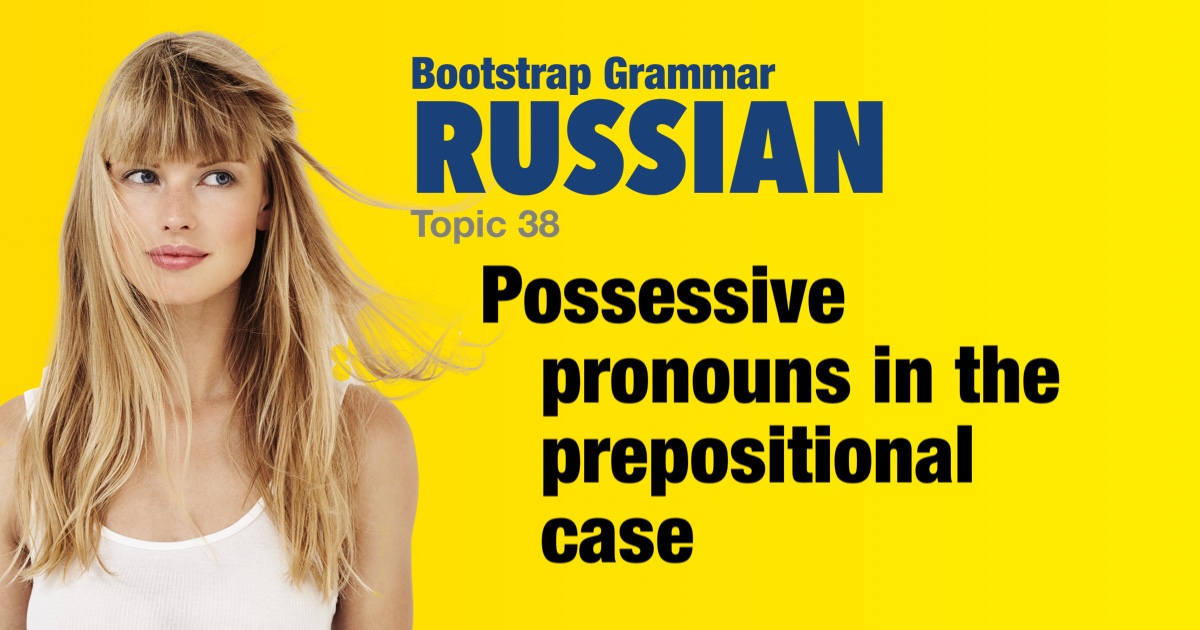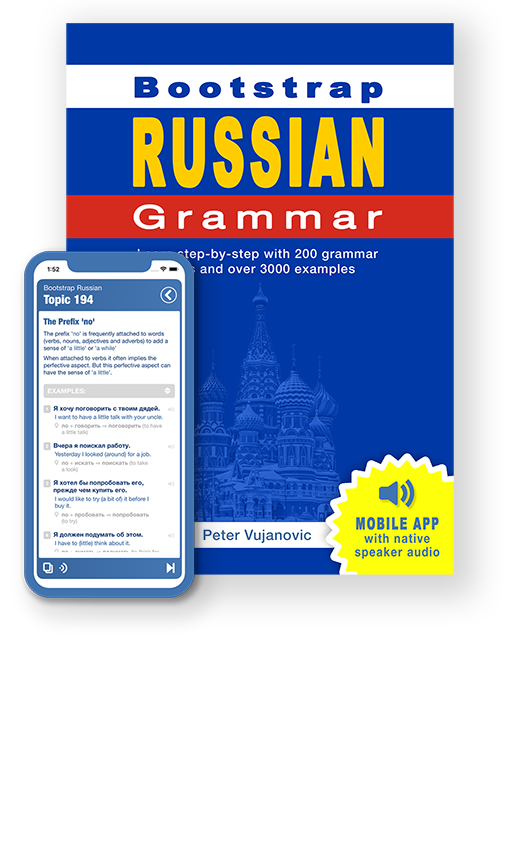Russian grammar - Possessive pronouns in the prepositional case |
|||
|
|||
The possessive pronouns in the prepositional case follow a simple pattern: • мой (masc.) ⇒ моём, моя (fem.) ⇒ моей, моё (neu.) ⇒ моём, мои (plural) ⇒ моих • твой ⇒ твоём, твоя ⇒ твоей, твоё ⇒ твоём, твои ⇒ твоих • наш ⇒ нашем, наша ⇒ нашей, наше ⇒ нашем, наши ⇒ наших • ваш ⇒ вашем, ваша ⇒ вашей, ваше ⇒ вашем, ваши ⇒ ваших • The third person forms don't change: его (his, its), её (her), их (their). |
| Examples: | |
|
Они в моей машине.
They are in my car.
|
|
|
Она в моём доме.
She is in my house.
|
|
|
Он на её столе.
It is on her table.
|
|
|
Почему собака на моём дереве?
Why is the dog in my tree?
|
|
|
Я думаю о твоём друге.
I am thinking about your (informal) friend.
|
|
|
Я думаю о её друге.
I am thinking about her friend.
|
|
|
Я думаю о вашем новом русском друге.
I am thinking about your (formal) new Russian friend.
|
|
|
Мы говорим о твоей книге.
We are talking about our book.
|
|
|
Мы говорим о твоей новой русской книге.
We are talking about your (informal) new Russian book.
|
|
|
Мы говорим о твоих новых русских книгах.
We are talking about your (informal) new Russian books.
|
|
|
Что ты думаешь о моём новом русском платье?
What do you (informal) think of my new Russian dress?
|
|
|
Вы думаете о наших новых русских друзьях?
Are you (plural) thinking about our new Russian friends?
|
|
|
Что вы думаете о их новых русских игрушках?
What do you (formal) think about their new Russian toys?
|
|
 |
|



